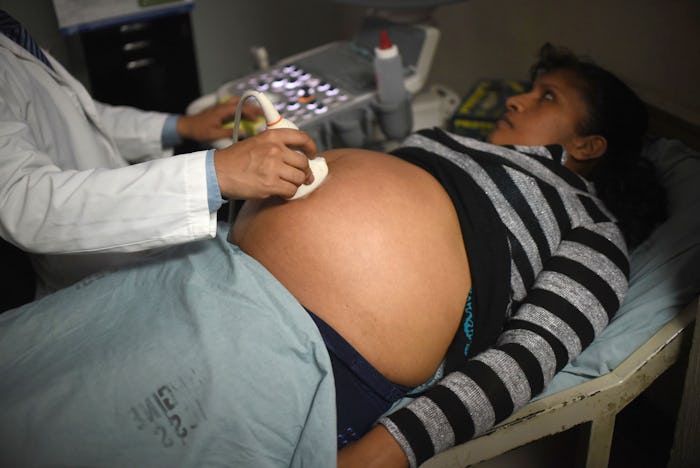Life

Can Zika Be Detected By Ultrasound? Blood Tests Can Be Delayed
With the threat of Zika creeping closer in the United States — the Centers for Disease Control and Prevention issued its first intra-country travel advisory for Florida this week — many expecting women are wondering how they can monitor their pregnancies for signs of Zika. For example, can Zika be tested by ultrasound, or should pregnant women be taking other steps to scan for the virus?
While doctors will use ultrasounds to monitor pregnant women who have had Zika, ultrasounds cannot detect the virus itself, nor are they the best first step in Zika testing. If pregnant women live in an area affected by Zika or are afraid they may have otherwise caught the virus, the first step in testing them for Zika is testing their blood, urine, and saliva samples. (A blood test searches for antibodies fighting off a Zika infection, while a urine test can detect an active Zika infection, according to NBC.) Typically, results are returned in three to five days.
If a pregnant woman's Zika test comes back with positive or inconclusive results, a few things happen. Women have the option of using an amniocentesis test — where amniotic fluid is extracted and tested — to check fetuses for Zika infection, although the test is up to mothers.
Ultrasounds come into play after a pregnant woman has been diagnosed with Zika, as a way to monitor fetuses for any signs of microcephaly or abnormal growth. Doctors recommend ultrasounds every three to four weeks, and frequent ultrasounds should be continued even if early results don't show abnormalities, since some issues, such as microcephaly, may not appear until later in pregnancy.
Pregnant women — or those hoping to become pregnant — who live in Zika-affected areas should take precautions as soon as possible, however. There is no cure for Zika yet, so women's best defense at the moment is avoiding mosquito bites in the first place. Experts recommend using mosquito repellant at indicated concentrations and times, and using air conditioning when indoors.
Women in Zika-affected areas should also be tested for Zika, even if they haven't experienced any symptoms (about 80 percent of infected people won't even know they have it). Those who aren't in areas with Zika but have traveled to an area known for it should also be tested. The CDC recommends testing for Zika at the first prenatal visit and again during the second trimester of pregnancy.
While it's a scary virus for pregnant women to contract, applying DEET dutifully and communicating any concerns to your doctor is the best way to safely monitor your pregnancy at the moment.